Smriti Bhagat
Recommending with an Agenda: Active Learning of Private Attributes using Matrix Factorization
Jul 30, 2014

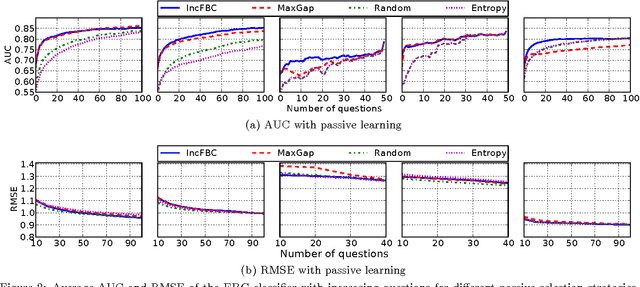

Abstract:Recommender systems leverage user demographic information, such as age, gender, etc., to personalize recommendations and better place their targeted ads. Oftentimes, users do not volunteer this information due to privacy concerns, or due to a lack of initiative in filling out their online profiles. We illustrate a new threat in which a recommender learns private attributes of users who do not voluntarily disclose them. We design both passive and active attacks that solicit ratings for strategically selected items, and could thus be used by a recommender system to pursue this hidden agenda. Our methods are based on a novel usage of Bayesian matrix factorization in an active learning setting. Evaluations on multiple datasets illustrate that such attacks are indeed feasible and use significantly fewer rated items than static inference methods. Importantly, they succeed without sacrificing the quality of recommendations to users.
Privacy Tradeoffs in Predictive Analytics
Mar 31, 2014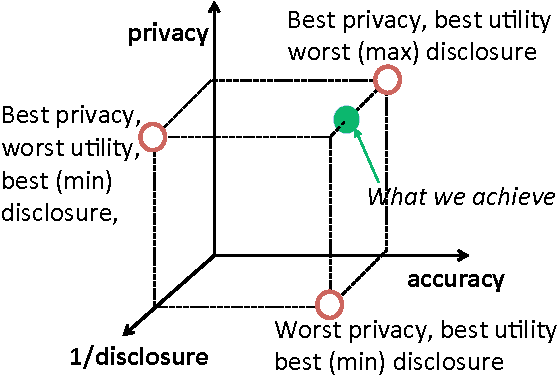
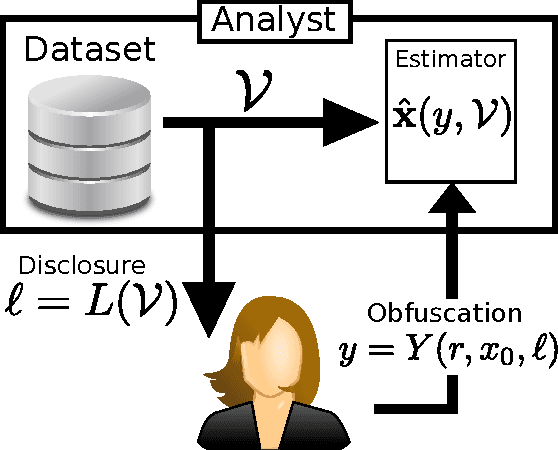
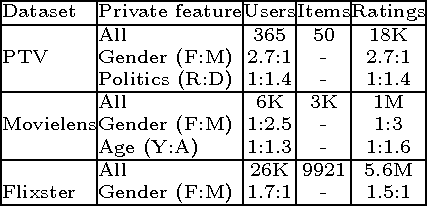
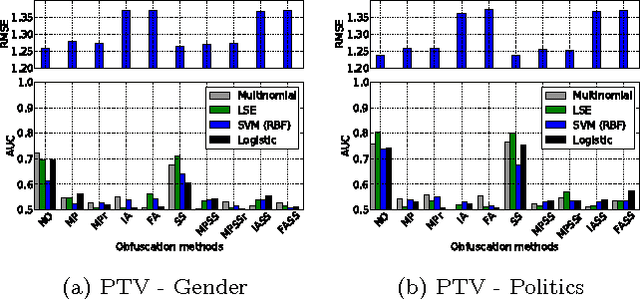
Abstract:Online services routinely mine user data to predict user preferences, make recommendations, and place targeted ads. Recent research has demonstrated that several private user attributes (such as political affiliation, sexual orientation, and gender) can be inferred from such data. Can a privacy-conscious user benefit from personalization while simultaneously protecting her private attributes? We study this question in the context of a rating prediction service based on matrix factorization. We construct a protocol of interactions between the service and users that has remarkable optimality properties: it is privacy-preserving, in that no inference algorithm can succeed in inferring a user's private attribute with a probability better than random guessing; it has maximal accuracy, in that no other privacy-preserving protocol improves rating prediction; and, finally, it involves a minimal disclosure, as the prediction accuracy strictly decreases when the service reveals less information. We extensively evaluate our protocol using several rating datasets, demonstrating that it successfully blocks the inference of gender, age and political affiliation, while incurring less than 5% decrease in the accuracy of rating prediction.
Leveraging Side Observations in Stochastic Bandits
Oct 16, 2012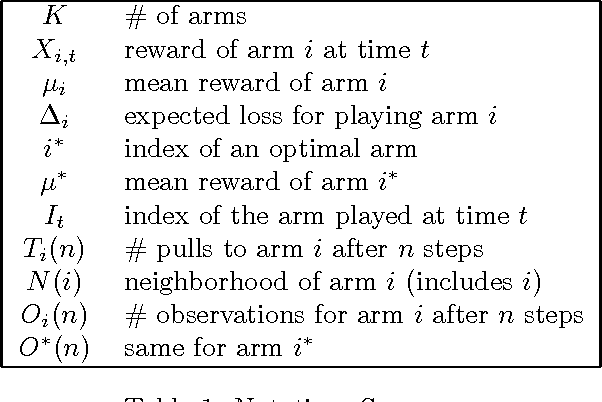



Abstract:This paper considers stochastic bandits with side observations, a model that accounts for both the exploration/exploitation dilemma and relationships between arms. In this setting, after pulling an arm i, the decision maker also observes the rewards for some other actions related to i. We will see that this model is suited to content recommendation in social networks, where users' reactions may be endorsed or not by their friends. We provide efficient algorithms based on upper confidence bounds (UCBs) to leverage this additional information and derive new bounds improving on standard regret guarantees. We also evaluate these policies in the context of movie recommendation in social networks: experiments on real datasets show substantial learning rate speedups ranging from 2.2x to 14x on dense networks.
 Add to Chrome
Add to Chrome Add to Firefox
Add to Firefox Add to Edge
Add to Edge